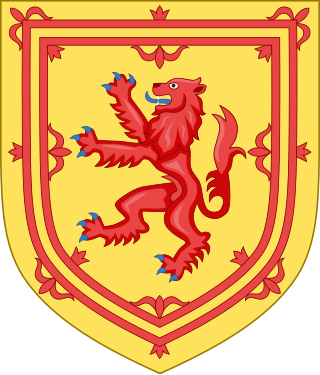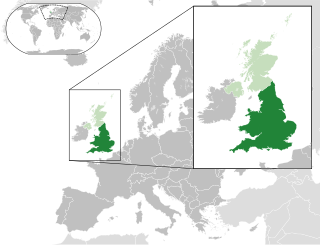A quango or QUANGO is an organisation to which a government has devolved power, but which is still partly controlled and/or financed by government bodies. The term was originally a shortening of "quasi autonomous NGO", where NGO is the acronym for a non-government organization.

The Regulation of Investigatory Powers Act 2000 (c.23) is an Act of the Parliament of the United Kingdom, regulating the powers of public bodies to carry out surveillance and investigation, and covering the interception of communications. It was introduced by the Tony Blair Labour government ostensibly to take account of technological change such as the growth of the Internet and strong encryption.
In the United Kingdom, non-departmental public body (NDPB) is a classification applied by the Cabinet Office, Treasury, the Scottish Government, and the Northern Ireland Executive to public sector organisations that have a role in the process of national government but are not part of a government department. NDPBs carry out their work largely independently from ministers and are accountable to the public through Parliament; however, ministers are responsible for the independence, effectiveness, and efficiency of non-departmental public bodies in their portfolio.

His Majesty's Home Civil Service, also known as His Majesty's Civil Service, the Home Civil Service, or colloquially as the Civil Service, is the permanent bureaucracy or secretariat of Crown employees that supports His Majesty's Government, which is led by a cabinet of ministers chosen by the Prime Minister of the United Kingdom of Great Britain and Northern Ireland, as well as two of the three devolved administrations: the Scottish Government and the Welsh Government, but not the Northern Ireland Executive.

The Home Office (HO), also known as the Home Department, is a ministerial department of the British Government, responsible for immigration, security, and law and order. As such, it is responsible for policing in England and Wales, fire and rescue services in England, visas and immigration, and the Security Service (MI5). It is also in charge of government policy on security-related issues such as drugs, counter-terrorism, and ID cards. It was formerly responsible for His Majesty's Prison Service and the National Probation Service, but these have been transferred to the Ministry of Justice.

The Scottish Government is the devolved government of Scotland. It was formed in 1999 as the Scottish Executive following the 1997 referendum on Scottish devolution.

The Qualifications and Curriculum Development Agency (QCDA) was a charity, and an executive non-departmental public body (NDPB) of the Department for Education. In England and Northern Ireland, the QCDA maintained and developed the National Curriculum and associated assessments, tests and examinations, advising the minister formerly known as the Secretary of State for Education on these matters.

The Welsh Government is the devolved government of Wales. The government consists of ministers and deputy ministers, and also of a counsel general. Ministers only attend the Cabinet Meetings of the Welsh Government. It is led by the first minister, usually the leader of the largest party in the Senedd, who selects ministers and deputy ministers with the approval of the Senedd. The government is responsible for tabling policy in devolved areas for consideration by the Senedd and implementing policy that has been approved by it.

The Department for Culture, Media and Sport (DCMS) is a department of His Majesty's Government, with responsibility for culture and sport in England, and some aspects of the media throughout the UK, such as broadcasting.

The Department of Health and Social Care (DHSC) is a department of His Majesty's Government responsible for government policy on health and adult social care matters in England, along with a few elements of the same matters which are not otherwise devolved to the Scottish Government, Welsh Government or Northern Ireland Executive. It oversees the English National Health Service (NHS). The department is led by the secretary of state for health and social care with three ministers of state and three parliamentary under-secretaries of state.

The National Audit Office (NAO) is an independent Parliamentary body in the United Kingdom which is responsible for auditing central government departments, government agencies and non-departmental public bodies. The NAO also carries out value for money (VFM) audits into the administration of public policy.

Executive agencies are established by ministers as part of Scottish Government to carry out a discrete area of work. They form an integral part of the Scottish Government, but have a specific, well-defined remit. They are staffed by civil servants and headed by a Chief Executive, who is a civil servant, and are directly accountable to the government.
The Shareholder Executive (ShEx) was a body within the UK Government responsible for managing the government's financial interest in a range of state-owned businesses for commercial rather than political interests. It was part of the Department for Business, Innovation and Skills and staffed by civil servants, many of whom were corporate finance professionals with private sector experience. It was led by Mark Russell as Chief Executive at the time of its closure.
Audit Scotland is an independent public body responsible for auditing most of Scotland's public organisations. These include the Scottish Government, local councils and NHS Scotland.

The UK Commission for Employment and Skills was a non-departmental public body that provided advice on skills and employment policy to the UK Government and the Devolved Administrations.

His Majesty's Courts and Tribunals Service (HMCTS) is an executive agency of the Ministry of Justice. It was created on 1 April 2011 by the merger of Her Majesty's Courts Service and the Tribunals Service.
The Sustainable Development Unit (SDU) was a British government agency with the purpose of embedding the principles of sustainable development, social value and the wider determinants of health across the health and social care system in England. In July 2022, as part of 'net zero' plans for the NHS, the SDU was replaced with the Greener NHS National Programme.

The Charities Regulator is the operational name of the Charities Regulatory Authority, the statutory authority responsible for the regulation of charities in Ireland. The organisation is made up of a board, with four sub-committees, and as of 2019, a staff of 38, including a chief executive.












